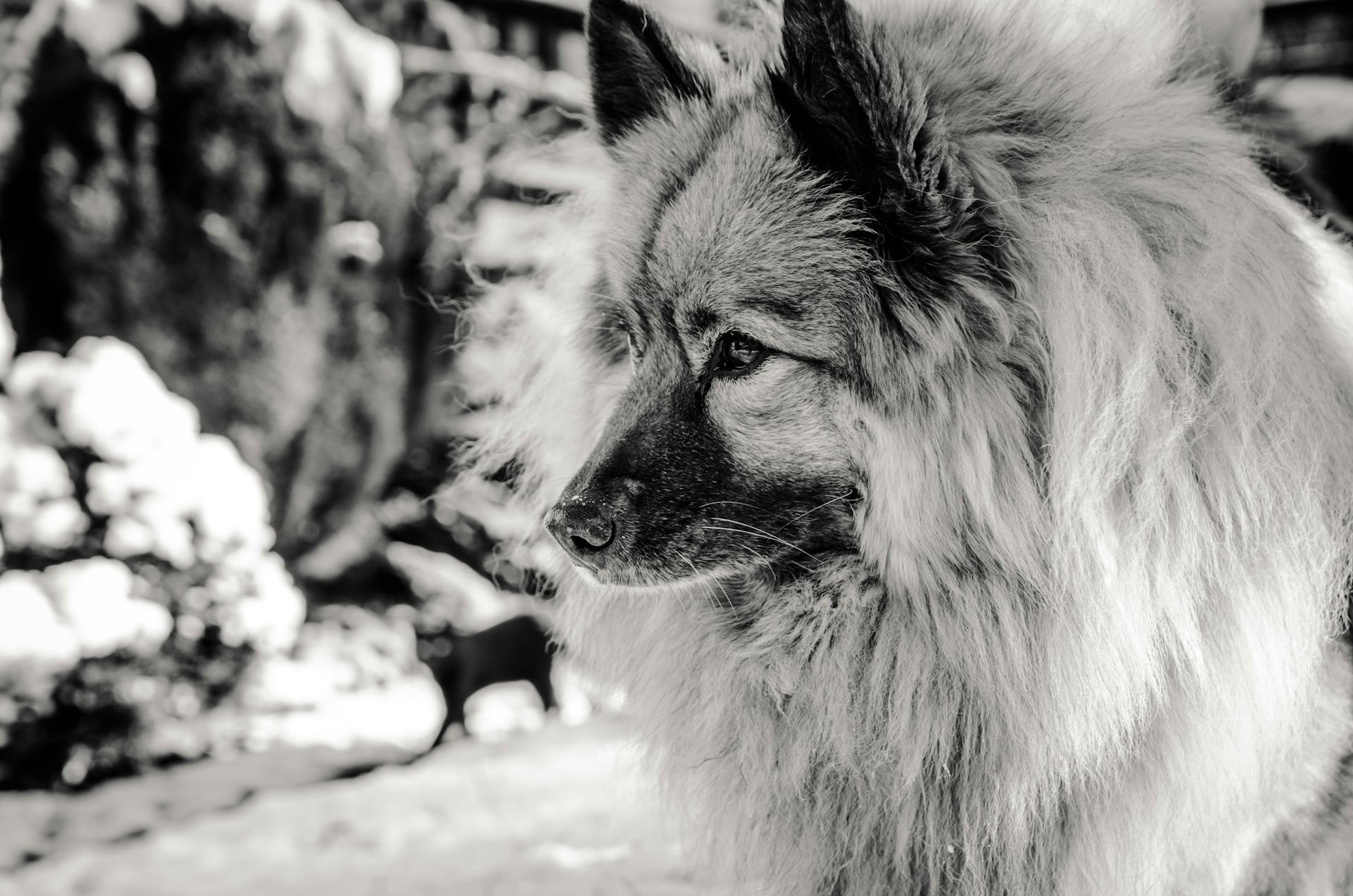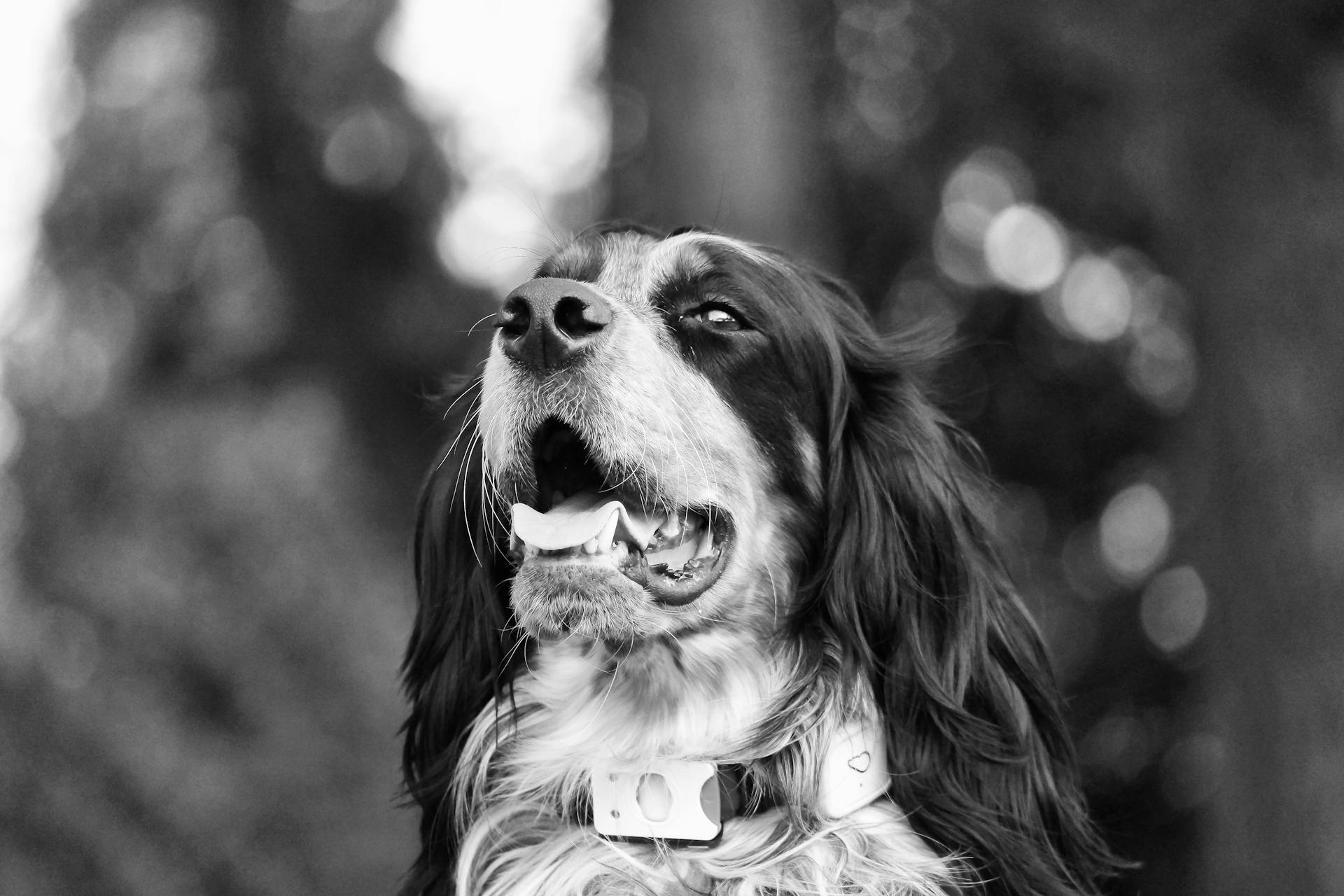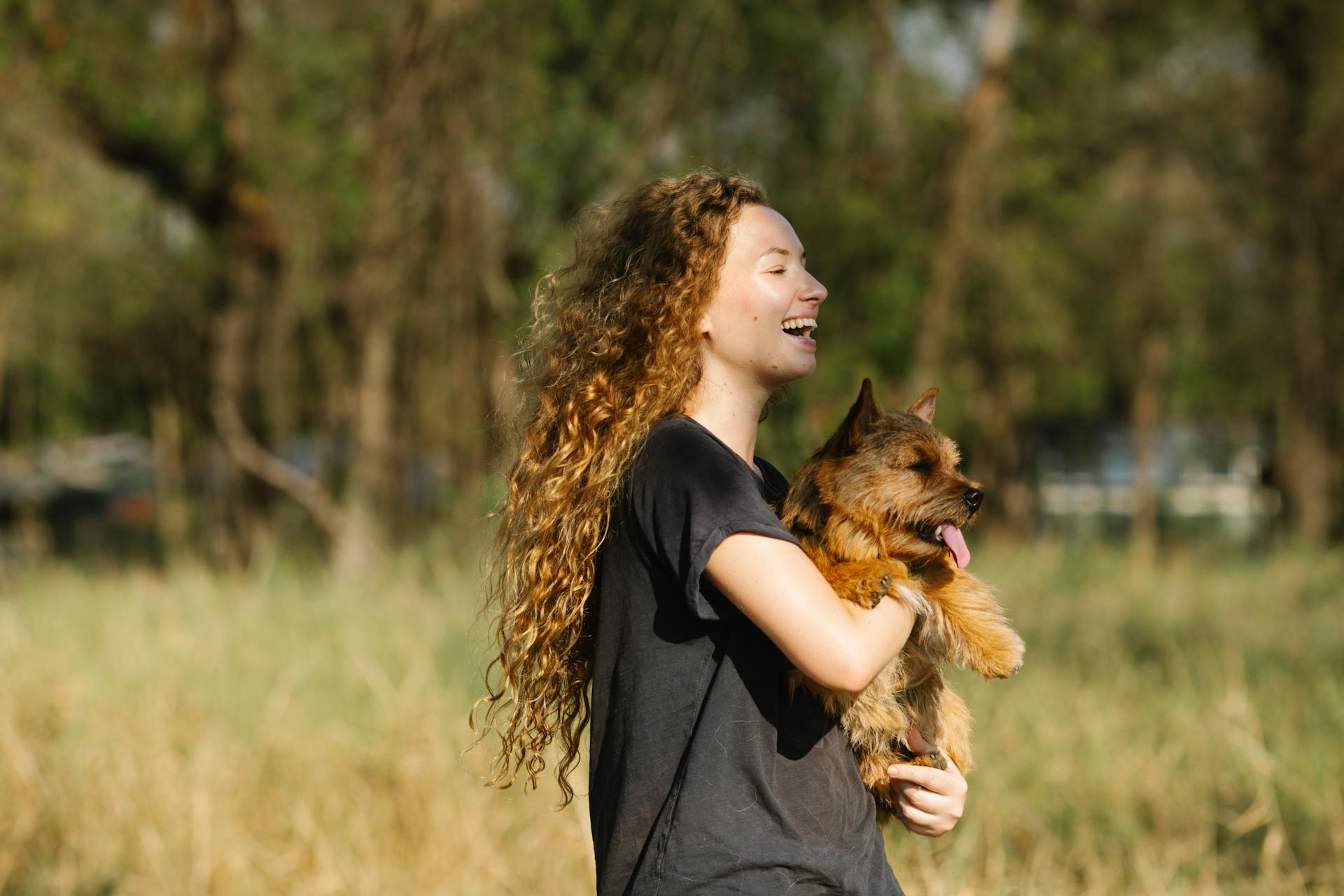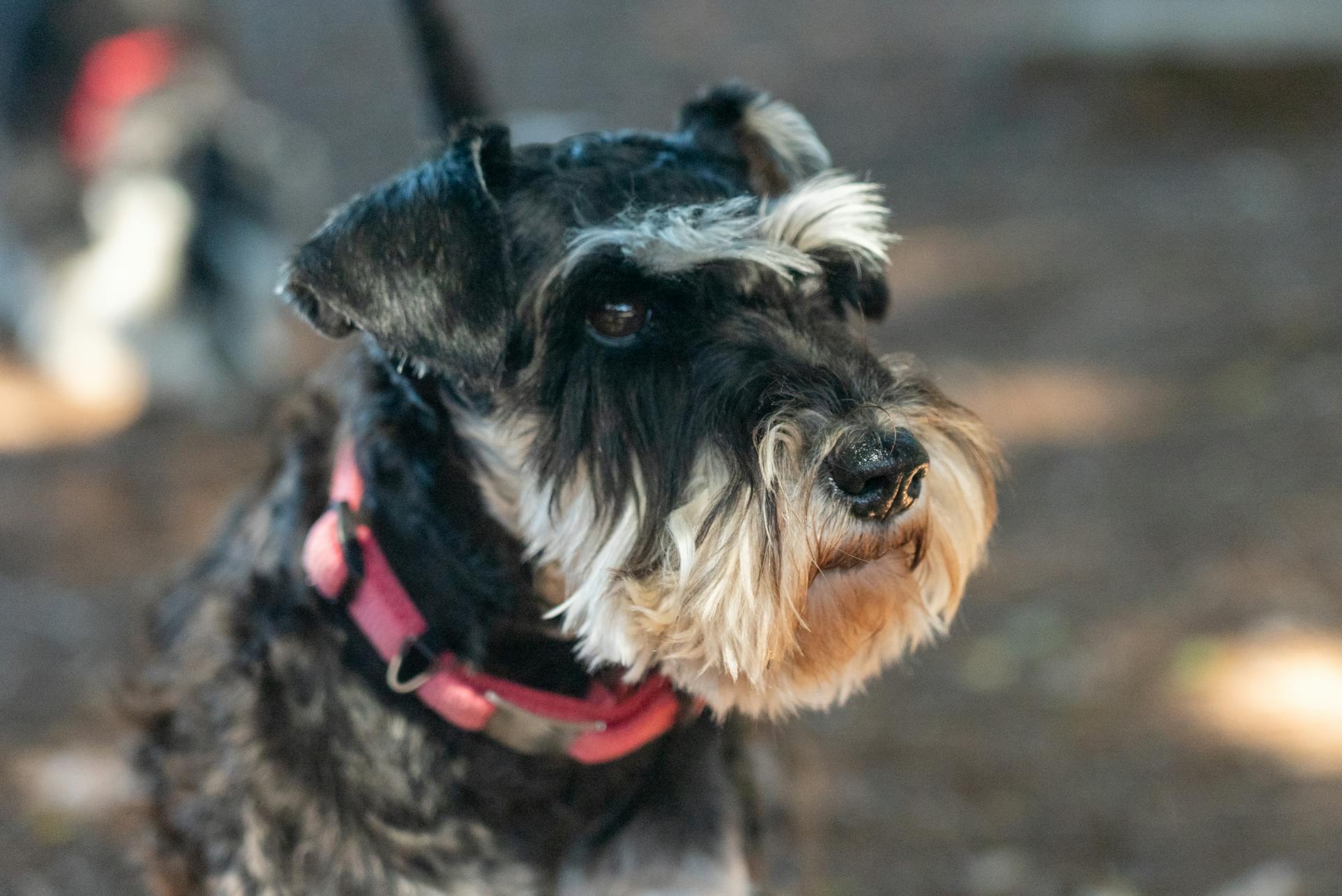
As a schnauzer owner, you want to ensure your adult dog stays healthy and happy. Regular exercise is a must, with a minimum of 30 minutes of physical activity daily to keep them physically and mentally stimulated.
Schnauzers are prone to obesity, so monitoring their food intake is crucial. A balanced diet with moderate portions will keep them in top shape.
To prevent ear infections, clean your schnauzer's ears weekly with a gentle ear cleaner. This simple habit can save you and your dog a lot of stress in the long run.
Schnauzers are intelligent dogs and need mental stimulation to prevent boredom. Engage them in puzzle toys or obedience training to keep their minds active and engaged.
For more insights, see: Facts about Miniature Schnauzers
What to Feed a Schnauzer Adult
When choosing a food for your adult Schnauzer, make sure it's approved by the Association of American Feed Control Officials and formulated for small dogs.
A well-balanced diet is crucial for your Schnauzer's active lifestyle, so look for a quality kibble with a fat content between 10%–15%.
To ensure your Schnauzer doesn't become overweight, which can lead to serious health conditions, measure the amounts and don't self-feed or free feed.
You can use the following guide as a starting point for feeding your Schnauzer, but remember to monitor their weight and adjust amounts accordingly:
One cup of food equals approximately 114 grams, so keep that in mind when measuring.
Caring for a Schnauzer Adult
Miniature Schnauzers are bright and charismatic dogs that can adapt to life in a city apartment as well as on a sprawling farm. They enjoy play as well as a good snooze, but they still need at least an hour of exercise a day.
They're sturdy dogs that don't shed much, making them a good fit for some people with dog allergies. No dog is 100% hypoallergic, so it's essential to spend time with a Schnauzer before deciding to bring one home.
Miniature Schnauzers require regular trims to keep their hair healthy and their mustache tidy. They should see a professional groomer at least once every eight weeks.
Consider reading: What Do Miniature Schnauzers Die from
Brushing your Schnauzer at least once a week helps reduce tangles and mats, keeping their coat looking its best. Be sure to pay extra attention to their signature beard, which may become discolored from eating or playing.
To maintain a Schnauzer's well-coiffed look, their wiry, medium-length coat requires a lot of grooming, both by their pet parents and a professional groomer.
Behavior and Training
Schnauzers are intelligent and eager to please, making them trainable dogs. They thrive on positive reinforcement methods and mental stimulation.
To develop into well-behaved and confident dogs, early socialisation and obedience training are crucial for Schnauzers. This sets the foundation for good behavior and helps them navigate new situations with ease.
Training sessions should be engaging and varied to keep their interest. A bored Schnauzer can quickly become restless and difficult to train.
Providing mental challenges, such as puzzle toys or interactive games, helps prevent boredom and promotes their mental well-being. This is especially important for adult Schnauzers, as they require regular mental stimulation to stay happy and healthy.
Readers also liked: Miniature Schnauzer Potty Training
What Is the Temperament Like?
Schnauzers are known for their spirited and friendly nature, making them a joy to be around.
They're intelligent, alert, and make excellent family companions, which is why they thrive in households with kids and other pets. With proper socialisation from an early age, they can get along well with children and other pets.
Schnauzers are typically loyal and protective of their families, making them reliable watchdogs. However, their strong guarding instincts may lead them to be wary of strangers, so early socialisation is essential to ensure they grow up to be well-rounded and confident dogs.
By enrolling your Schnauzer in dog sport classes, such as agility or obedience competitions, you can give them a job to do and keep their body and brain active. This is especially true for Miniature Schnauzers, who are naturally energetic and eager to please their family.
If this caught your attention, see: Does a Miniature Schnauzer Shed
Health and Wellness
Schnauzers are generally a healthy breed, but like all dogs, they can be prone to certain health issues. This list is by no means comprehensive, but it's a good starting point for understanding what to look out for.
Hormonal issues can affect some Schnauzers, and it's essential to keep an eye out for any changes in their behavior or physical health.
Explore further: Giant Schnauzer Health Problems
Eye Care
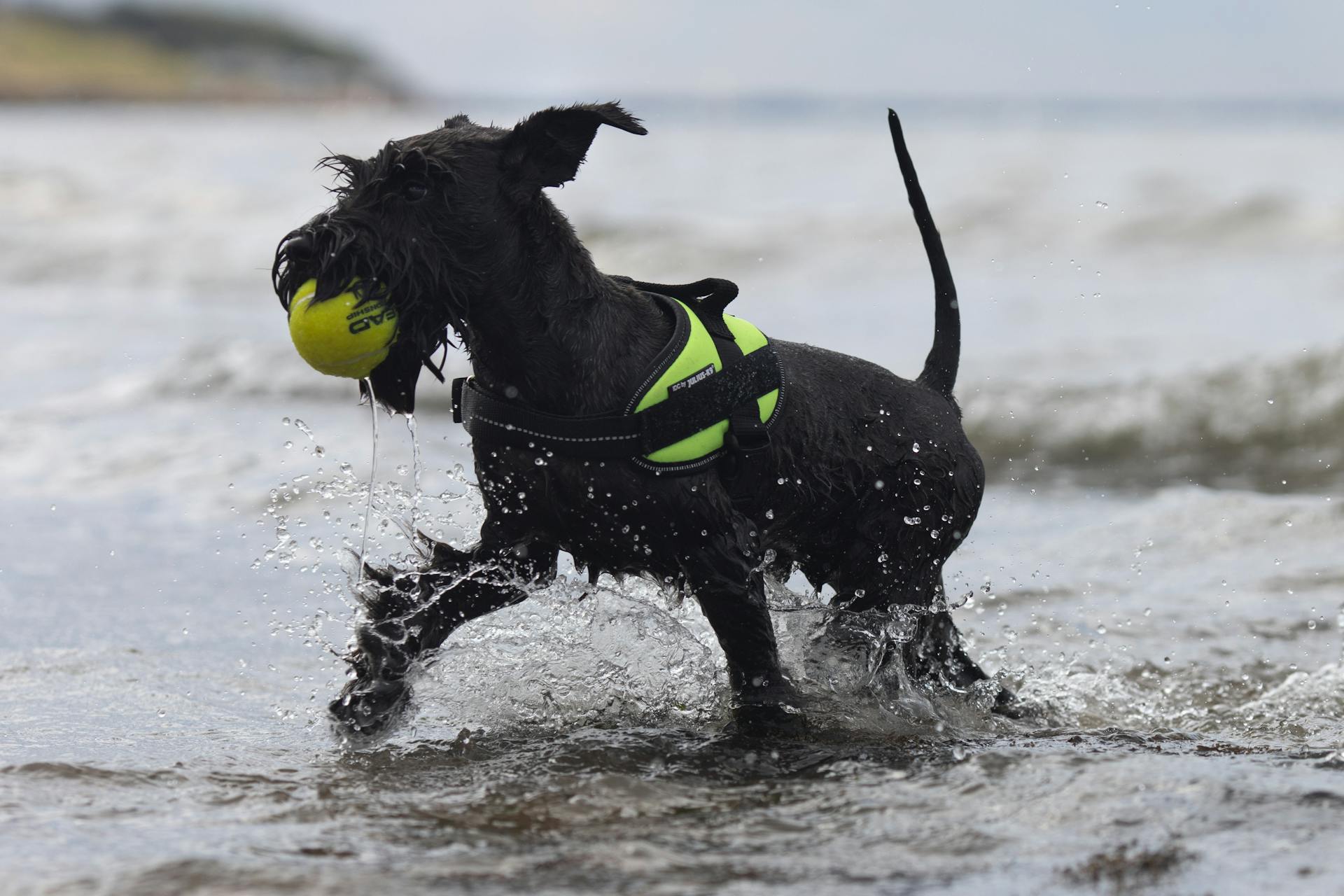
Taking care of your Miniature Schnauzer's eyes is crucial to prevent any potential issues. Pet parents need to pay special attention to the hair around their Miniature Schnauzer’s eyes, as it can block the dog’s vision.
Keeping their hair trimmed will help. Regular grooming sessions can also help prevent eye problems in your furry friend.
Intriguing read: Schnauzer Eyes
Ear Care
Miniature Schnauzers aren't prone to ear infections, which is great news for pet parents.
However, their ears still need regular cleaning, especially after water activities like baths or swims. Moisture can become trapped in their ear canals and cause infections if not cleaned out properly.
Worth a look: Giant Schnauzer Ear Cropping
Hormonal
Hormonal issues can affect dogs of any breed, but some breeds are more prone to certain hormonal imbalances. If you have any concerns about the health of your dog, consult with your vet.
Hypothyroidism is a common hormonal issue in dogs, and it's often seen in breeds like Schnauzers. This condition occurs when the thyroid gland doesn't produce enough hormones.
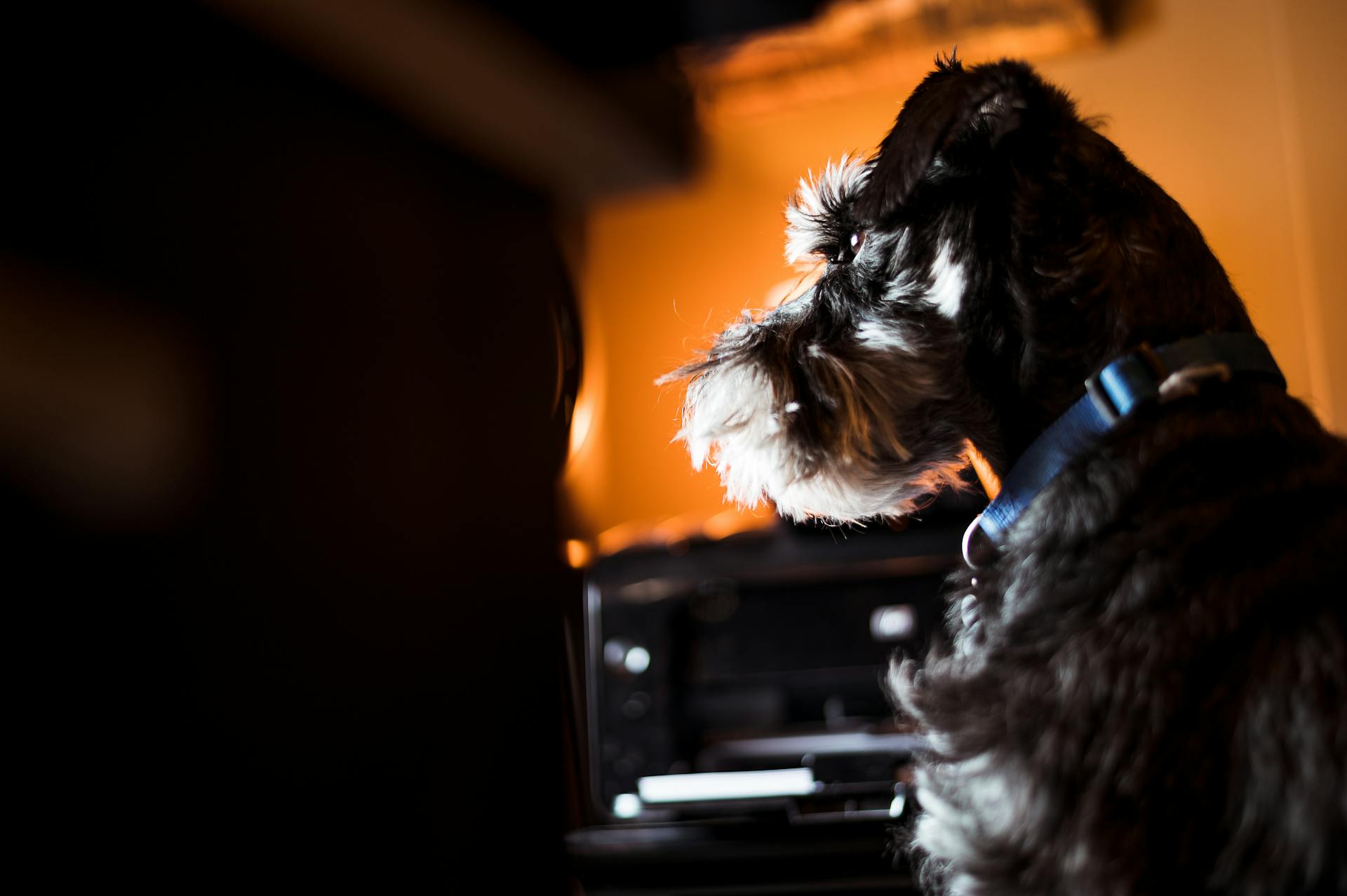
Regular check-ups with your vet can help identify any hormonal imbalances early on, making treatment more effective. This is especially important for breeds that are prone to certain hormonal issues.
Some breeds, like Schnauzers, are more likely to develop hypothyroidism due to their genetic makeup. If you're considering bringing a Schnauzer into your family, be sure to discuss this with your vet.
Untreated hypothyroidism can lead to a range of symptoms, including weight gain, skin problems, and a lack of energy. Consult with your vet to determine the best course of treatment for your dog.
Exercise and Activities
Schnauzers need regular physical activity to stay happy and healthy.
They have moderate exercise needs, which means they enjoy daily physical activity, but don't require as much as some other breeds.
The amount of exercise required may vary based on the size of the Schnauzer.
Giant and standard Schnauzers tend to enjoy approximately 1 to 2 hours of exercise per day, which can include brisk walks, jogging, and engaging play sessions.
Miniature Schnauzers need around 30 to 60 minutes of exercise daily, which can include walks, playtime, and mental stimulation through puzzle toys or training exercises.
Puppies of all Schnauzer sizes have specific exercise needs, and their exercise should primarily consist of short play sessions until they reach around 3 to 4 months of age.
From 4 months to around 12 months, you should gradually increase their exercise time up to the recommended amounts mentioned above.
Here's a rough guide to exercise needs by age group:
Breed Information
Schnauzers are a delightful breed known for their distinctive bearded snouts and wiry coats.
They come in three sizes: Giant Schnauzer, Standard Schnauzer, and Miniature Schnauzer.
These intelligent dogs were originally bred for various purposes, including herding, guarding, and companionship.
Here's a quick rundown of the average heights for each size:
Their weights also vary depending on the size, with Miniatures weighing approximately 5-9kg, Standards weighing around 14-20 kg, and Giants weighing between 29-41 kg.
Schnauzers have a life expectancy of about 12 to 15 years.
Frequently Asked Questions
How big do Schnauzers get?
Standard Schnauzers typically grow to 18-19 inches tall and weigh between 25-45 pounds. Their compact size makes them a great fit for many families.
Why are Schnauzers so special?
Schnauzers are special due to their versatility and ability to perform various tasks, such as guarding livestock and protecting their owners. Their rich history as working dogs has made them a beloved and unique breed.
What is the average life expectancy of a Schnauzer?
The average life expectancy of a Schnauzer is 12-14 years, but with proper care and health, some can live up to 16 years or more. Factors like diet, environment, and exercise play a significant role in determining a Schnauzer's lifespan.
Sources
- https://www.petmd.com/dog/breeds/miniature-schnauzer
- https://bestbreed.com/product_detail/schnauzer-dog-diet/
- https://www.borrowmydoggy.com/doggypedia/dog-breed-guides-schnauzer
- https://petdirect.co.nz/p/miniature-schnauzer-adult-dry-dog-food/
- https://petfoodclub.co.nz/product/miniature-schnauzer-adult/
Featured Images: pexels.com
